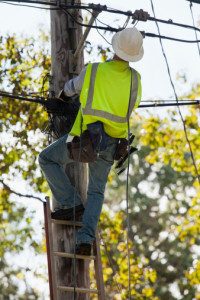 Many jobs require that employees spend more time out of the office than in the office. Employees travel to meet with customers, to go to work-sites, complete work-related errands, and attend meetings. Unfortunately, in the course of these off-site excursions, occasionally employees are injured. However, according to a Providence worker’s compensation attorney, not all such injuries are compensable under worker’s compensation laws. In order to determine whether an injury is compensable, it must have occurred “during the course of employment.” A recent Rhode Island case clarifies the circumstances under which an injured field worker would be entitled to worker’s compensation benefits.
Many jobs require that employees spend more time out of the office than in the office. Employees travel to meet with customers, to go to work-sites, complete work-related errands, and attend meetings. Unfortunately, in the course of these off-site excursions, occasionally employees are injured. However, according to a Providence worker’s compensation attorney, not all such injuries are compensable under worker’s compensation laws. In order to determine whether an injury is compensable, it must have occurred “during the course of employment.” A recent Rhode Island case clarifies the circumstances under which an injured field worker would be entitled to worker’s compensation benefits.
The Case of Paul Ellis
Paul Ellis was an employee of Verizon New England, Inc. who worked in the field repairing cable lines. On September 17, 2007, Ellis was assigned to a job in the West End of Providence. When he arrived, there was a man across the street from where Ellis needed to work yelling indiscriminately. Eventually Ellis responded to the man’s comments. The man proceeded to beat Ellis with a piece of wood. Ellis ended up in the hospital with serious head injuries and did not return to work for 2 months. Ellis’ application for worker’s compensation benefits was denied. The trial court concluded and the Worker’s Compensation appellate division concurred that Ellis had not shown that his injuries occurred during the course of employment. Ellis appealed to the Supreme Court of Rhode Island.
Street Peril Doctrine
In determining whether Ellis’ injuries occurred during the course of employment, the Supreme Court of Rhode Island applied the “street peril” doctrine. The street peril doctrine considers the extent to which there is an inherent risk of being injured while using public roadways. It has been applied to cases where employees have been injured in automobile accidents while driving in the course of employment, as being in a car accident is an inherent risk to driving on public roads. For example, the court determined that in a case where a nursing assistant was injured in a car accident the risk of travel was inherent to her job since she was required to drive to her patients’ homes.
Based on this precedent, if Ellis had been hit by a car instead of hit by a stick wielded by a stranger, his claim for worker’s compensation would have been approved. The Supreme Court concluded that the case where a field worker is injured in a car wreck is not distinguishable from a field worker who is injured by a physical attack by a stranger. In both cases the worker is subjected to inherent risks of working out in the public.
Furthermore, the court left open the possibility that the street peril doctrine could be applied to allow worker’s compensation claims for workers injured due to broken sidewalks, dog-bites, and other types of injuries that can happen when working outside in the public.
Actual Risk Limitation
While expanding the reach of the street peril doctrine, the court cautioned that it would not apply to every case where a worker must spend some work time in the public, but must be considered on a case-by-case basis. In the Ellis case the court reviewed the details of Ellis’ job requirements and found that the risk of being injured by an attack by a stranger is not only a street risk, but an actual risk of his employment. Thus, it appears that a worker who seeks worker’s compensation benefits for an injury received while working in the field must show that there was an actual risk for the type of injury that was suffered.
Even though the Ellis judge sought to limit the applicability of the street risk doctrine by noting that there must be an actual risk, do you believe that this doctrine could in reality apply to practically any job that involves being in the field since almost anything can happen in the public?


